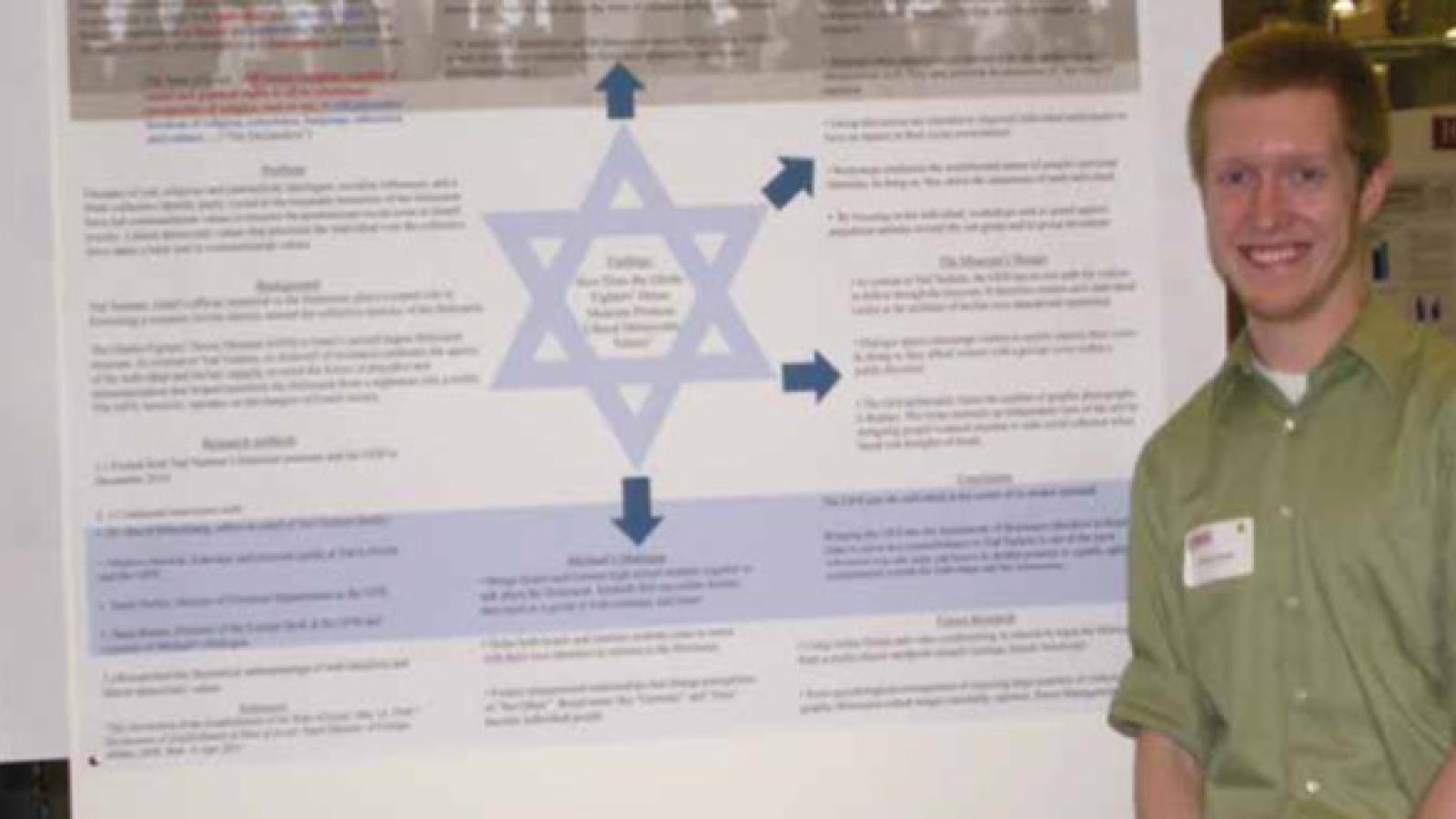From the Pit of the Ghetto to the Pinnacle of Liberalism
Presenter: Michael Eizyk International Relations & Diplomacy
Advisor: Prof. Michael Neblo, Political Science
An inherent clash between liberal and communitarian values is deeply ingrained in Israeli society. Although Israel's Declaration of Independence upholds the state's commitment to protecting all of its citizens' social and political freedoms, decades of war, religious and nationalistic ideologies, socialist influences, and a collective identity rooted, in part, in the traumatic memories of the Holocaust have buried these liberal values under an anti-liberal ethos of collectivism. This study addresses the ways in which the Ghetto Fighters' House Museum, Israel's first Holocaust museum, strives to promote liberal-democratic values in Israel's highly communitarian society.
After touring the museum and collecting brochures and pamphlets, I spoke with four educational guides and administrators at the main museum, its children's museum (Yad LaYeled), and its Center for Humanistic Education regarding the museum's educational programs and teaching philosophy. I then researched the theoretical underpinnings of liberalism, individualism, and democratic thought. In doing so, I discovered that the museum's leitmotif of resistance is not only essential to its mission of educating a global audience about Jewish partisan movements and uprisings in ghettos and concentration camps during World War II, but is also a medium through which the museum promotes a liberal culture of individualism that empowers the individual to stand apart from the crowd, to make independent judgments, and, if necessary, to resist coercive state powers. The findings add to a growing body of scholarship that demonstrates how Holocaust education and commemoration in Israel have been transforming as a result of the gradual resurfacing of liberal-democratic values in Israeli society. Given that the collective memory of the Holocaust is a fundamental component of Jewish-Israeli identity, the spread of liberal values in Holocaust education has tremendous implications for Israeli society as a whole.

